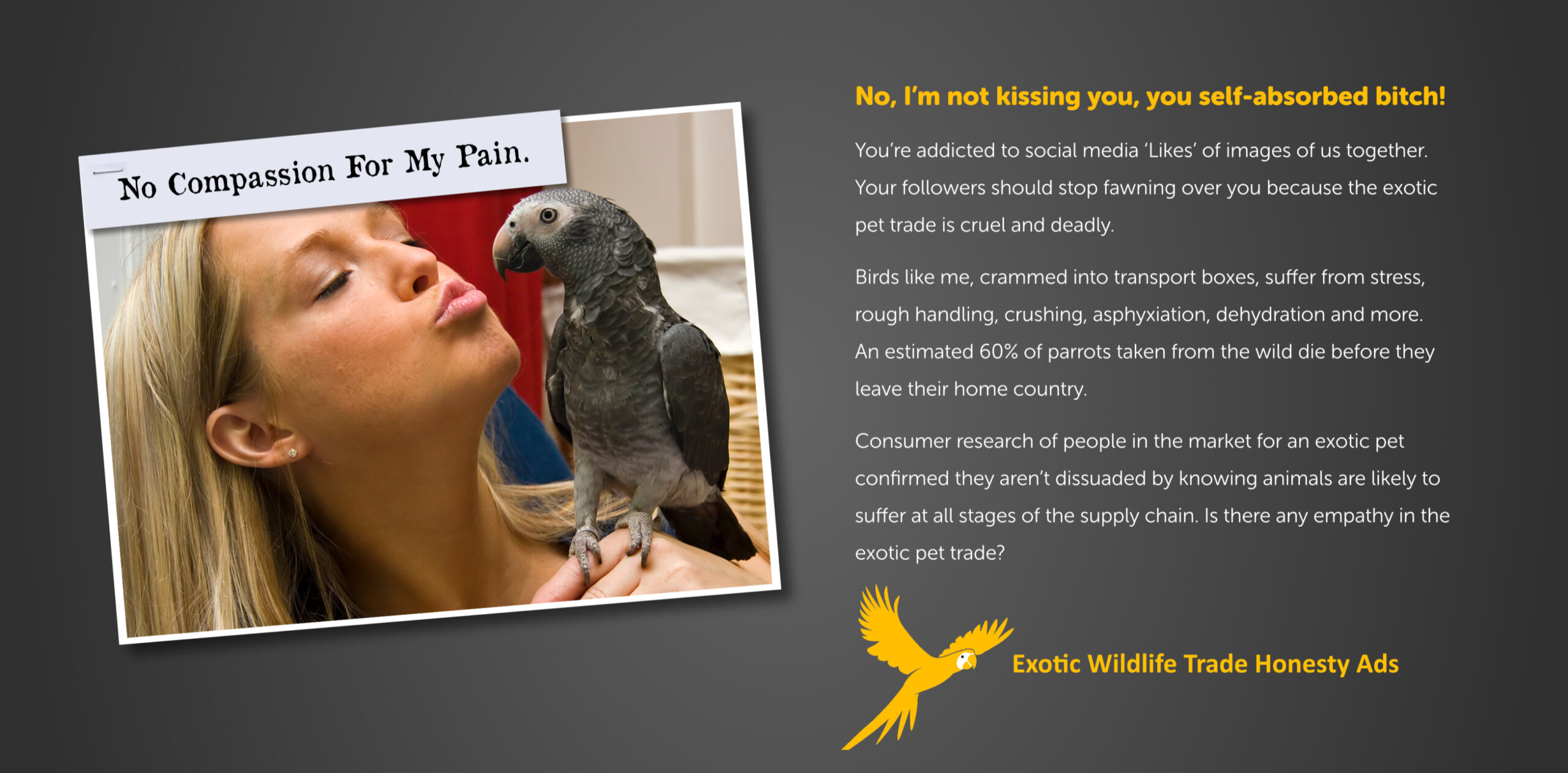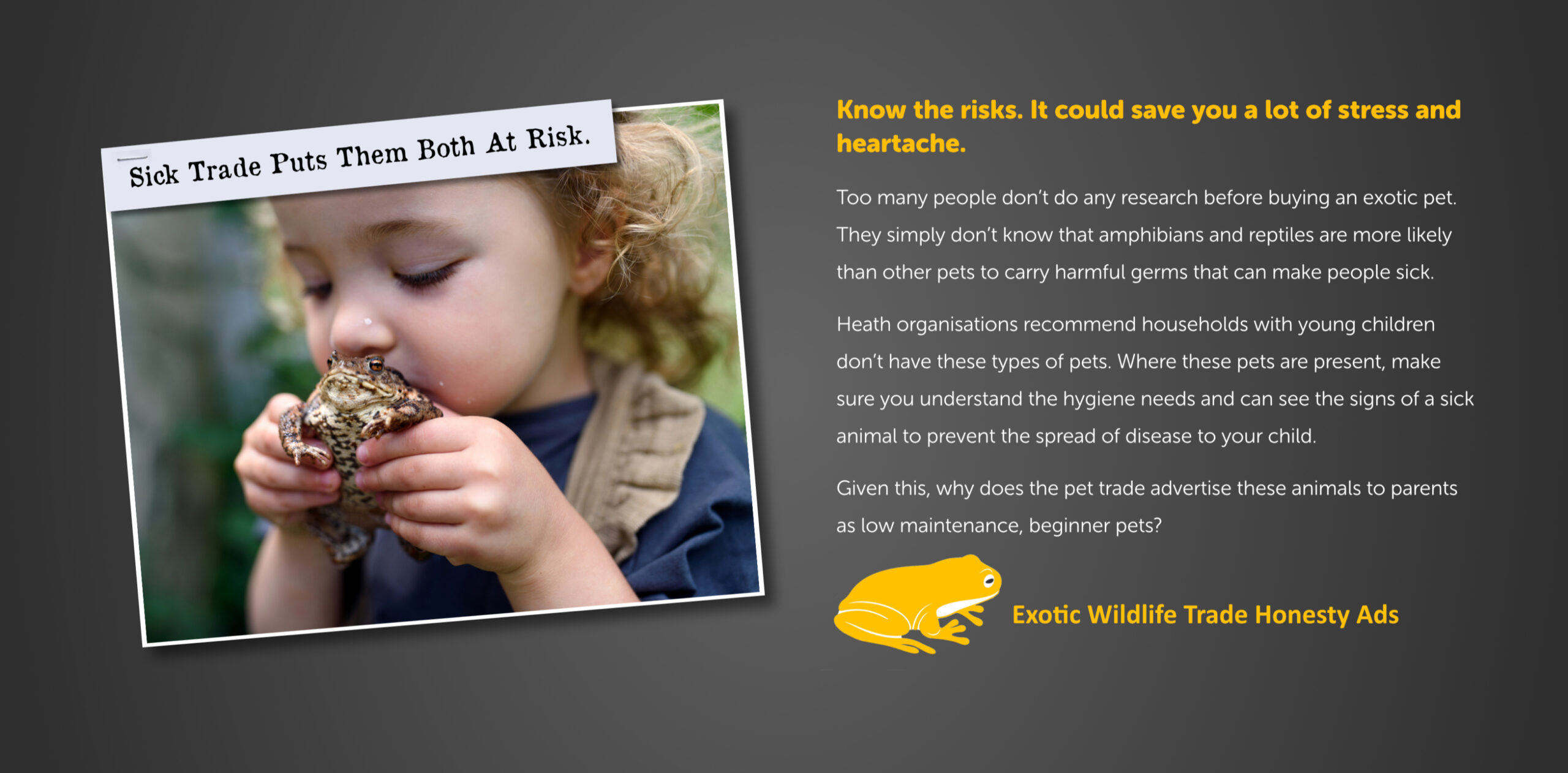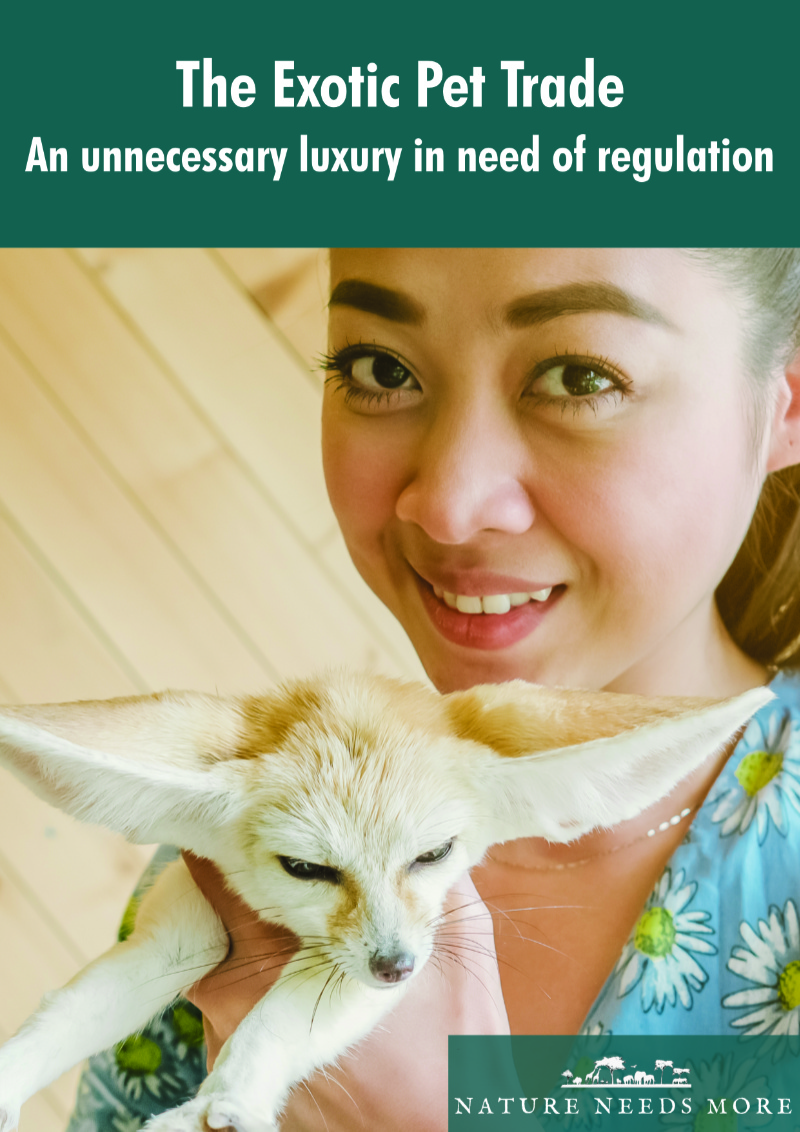
It seems like barely a day goes by without at least one article, somewhere in the world, highlighting the problems associated with the exotic pet trade (EPT). Live animals seized at airports, population decline of species popular in the trade, social media’s role, the torture of animals for followers, the staggering mortality rates in and trauma in the supply chains.
This is a scandal on a global scale and a scandal that currently shows no signs of being stopped. Why?
Because, as with all other forms of overextraction of wild species for profit, key suspects are taken out of the frame. Too few inroads have been made, and will be made, in dealing with the lack of sustainability in the legal EPT, because there is so little appetite to effectively regulate the industry. This allows businesses to ruthlessly take advantage of imperfections, weaknesses, and vulnerabilities within the supply chains and marketplace, of which there are many.
This is the background to Nature Needs More’s new report, The Exotic Pet Trade – An Unnecessary Luxury In Need Of Regulation
What is particularly scandalous about this trade is that the imperfections, weaknesses, and vulnerabilities within the legal trade system allow the legal overexploitation of live non-human animals. Perhaps more than any other commercialisation, the exotic pet trade lays bare our fractured relationship with wildlife and the natural world.
With much of this trade either poorly regulated or not regulated at all, there is ample evidence of high mortality rates in supply chains together with suffering and deaths because of inappropriate care by ignorant owners.
The lack of investment in proper regulation, monitoring and enforcement to solve this means that the sickness, trauma and deaths of animals for the exotic pet trade are simply considered a cost of doing business. And, the exotic pet trade is big business with no proof of ecological sustainability.
The predatory nature of the exotic pet trade is highlighted by the fact that species newly identified by science, and with very little known about them, can enter the EPT within a year of first being documented. Rarity value and newness appeal to collectors and contribute to profits.
Our main aim with this report is to explore the suitability of using positive lists (which legislate the species that are allowed to be traded and owned) to better regulate the exotic pet trade. There is a strong push underway in Europe to switch to positive lists and a number of countries in the EU have implemented at least partial positive lists. Unfortunately, there is little evidence that the animal welfare and conservation charities pushing for this chnage have a good understanding of regulatory frameworks and what it takes to craft legislation that can and will be enforced. They have failed to realise that without the creation of dedicated monitoring and enforcement capacity and associated funding, newly created positive lists will not be enforced, and their effort to bring in the legislation will have been wasted.
In our report we detail what additional measures need to be included in legislation to give it the best chance to succeed in curtailing the legal exotic pet trade and the illicit trade it enables. The starting point needs to be to understand both the commercial realities and the motivations of all the actors involved in the trade, the businesses, the social media influencers, and the owners. Once a positive list comes into force, large parts of the trade become illegal by default. That means that creating a dedicated and fully funded monitoring and enforcement framework is just as important as creating the positive list.
We argue in this report that such a monitoring and enforcement framework needs to be funded from licence and registration fees raised from both traders along the entire supply chain and via mandatory pet registration fees from owners. None of this is new or unusual. Licence and registration schemes to fund regulators are found in any number of industries.
Domestic successes with the implementation of positive lists in individual countries in the EU will also not solve the problems in the international trade. Better international regulation is only possible via modernising CITES, so it is able to cope with current and future trade conditions, as positive lists are not an option without amending the articles of the convention. This might be possible via adding a protocol instead of reopening the articles for negotiation. Regardless, CITES would also need to embrace an equitable funding mechanism for monitoring and enforcement, which it currently lacks.

The understanding of capitalism’s predatory relationship with nature without stringent regulation is nothing new. In 1871, Ferdinand V. Hayden published the Hayden Geological Survey of the region that would later become Yellowstone National Park. He warned that if the park wasn’t created, there were those who would come and “make merchandise of [its] beautiful specimens”, continuing, “the vandals who are now waiting to enter into this wonder-land, will in a single season despoil, beyond recovery, these remarkable curiosities”. Because the regulations that have been put into place since have always prioritised human interests over nature, all the schemes, treaties, conventions and institutions have achieved nothing to curb the vandalism in the 150 years since Hayden’s prediction.
Currently the elites and their cheerleaders still perpetuate the myth of inexhaustibility of natural resources, so they can benefit from the overextraction, overproduction and overconsumption of the little that is left. Only when we are collectively ready to make an informed choice about the global systems needed to save the remaining wonders can we ensure that wild species are seen as more than merchandise. The EPT is a good place to start, as this trade is also an entirely unnecessary luxury trade. Nobody needs to own an exotic pet.
In its current state, the EPT showcases that humanity is deluded in thinking that we have made any progress in our relationship with wild species, in working towards ecological sustainability and stemming biodiversity loss. While we allow ourselves to feel good about rewilding projects (which Nature Needs More supports) that appear to ‘raise the ceiling’ of our humanity, we conveniently ignore that fact that we aren’t ‘raising the floor’ to protect the little that is left.
In fact the floor is collapsing further, as already non-existent ‘green tape’ regulation is weakened. Lina Khan, when she was Chair of the US Federal Trade Commission, was right when she said, “First companies become too big to fail, then too big to jail, then too big to care”. Yet too many policy makers are in denial that companies have been allowed to evolve to the point where they become too big to fail and too big to jail.
The lack of action in constraining companies in both size and behaviour creates a system where companies don’t need to care about even the biggest threats to our collective survival – biodiversity loss and climate change. Changing the behaviour of all actors in the EPT would be a great start to reverse course.

